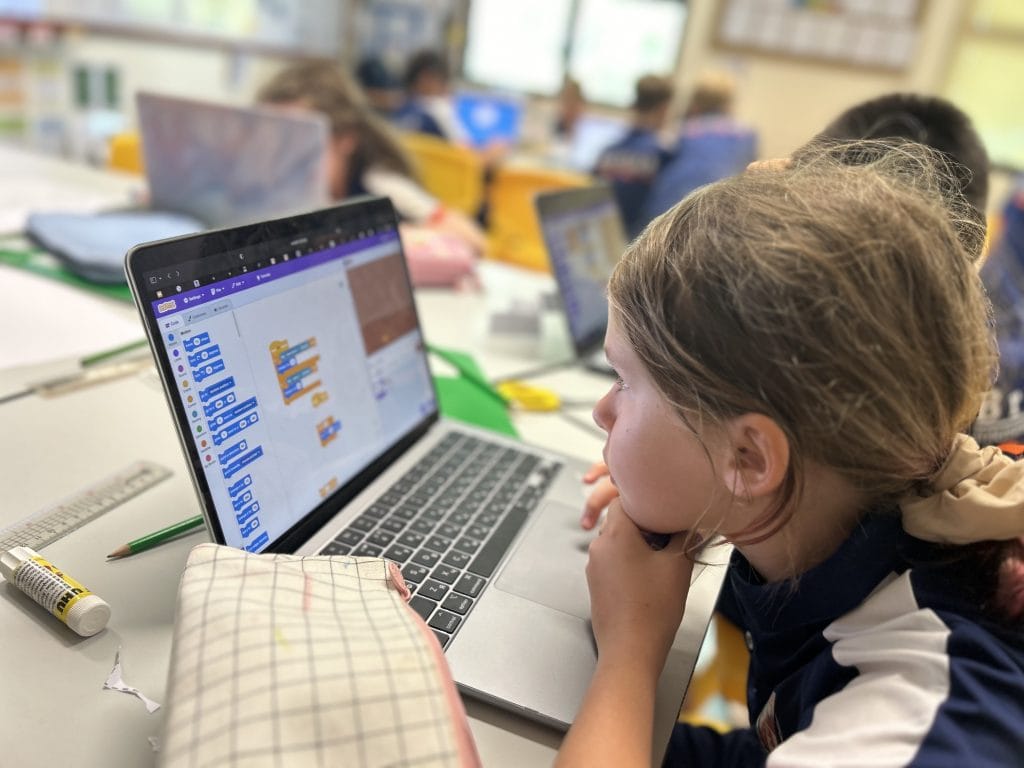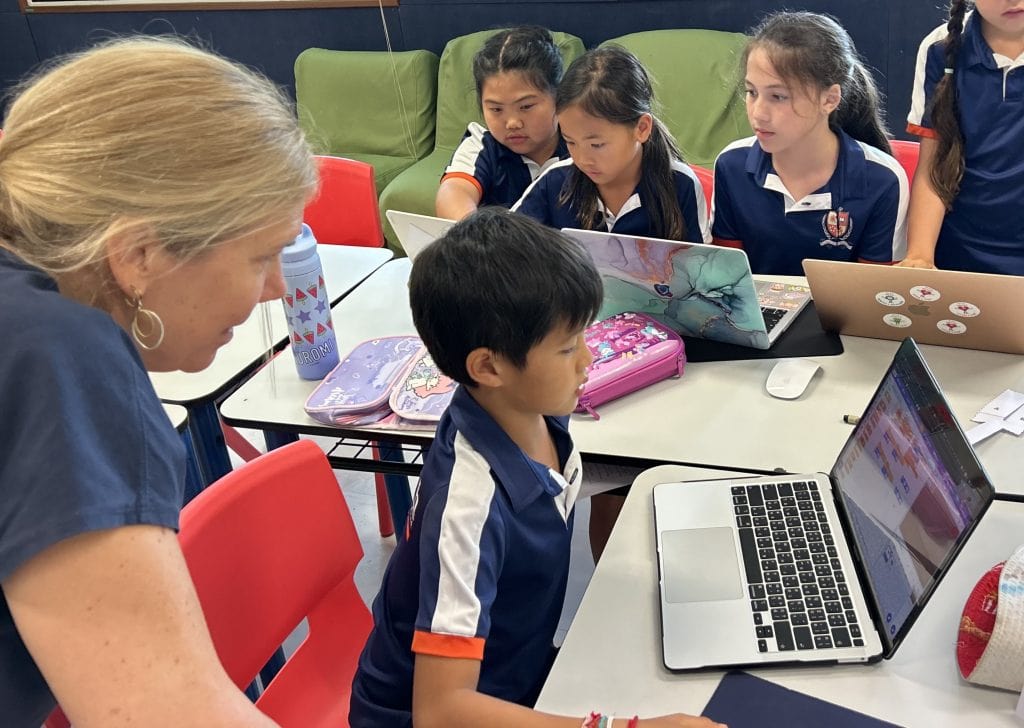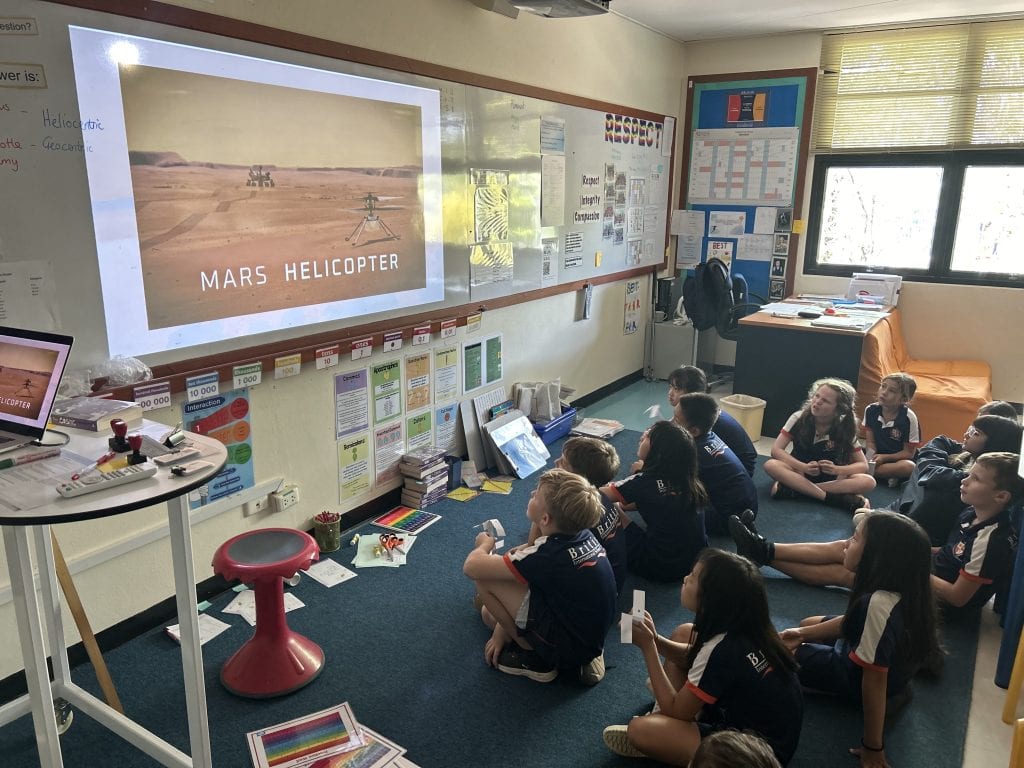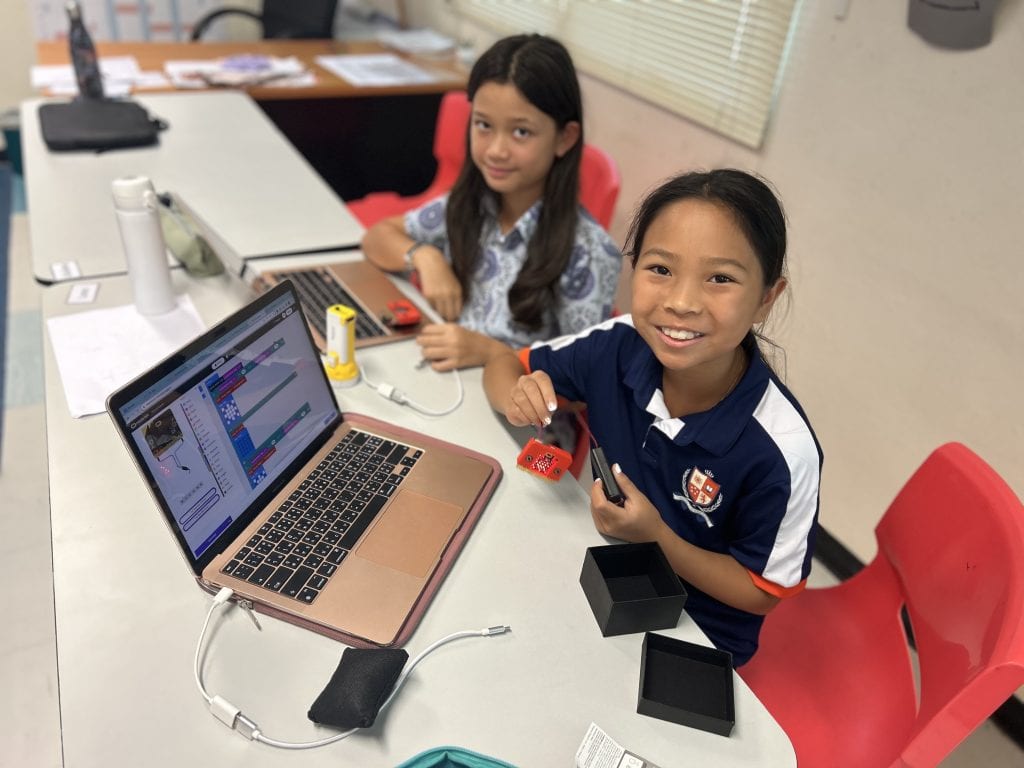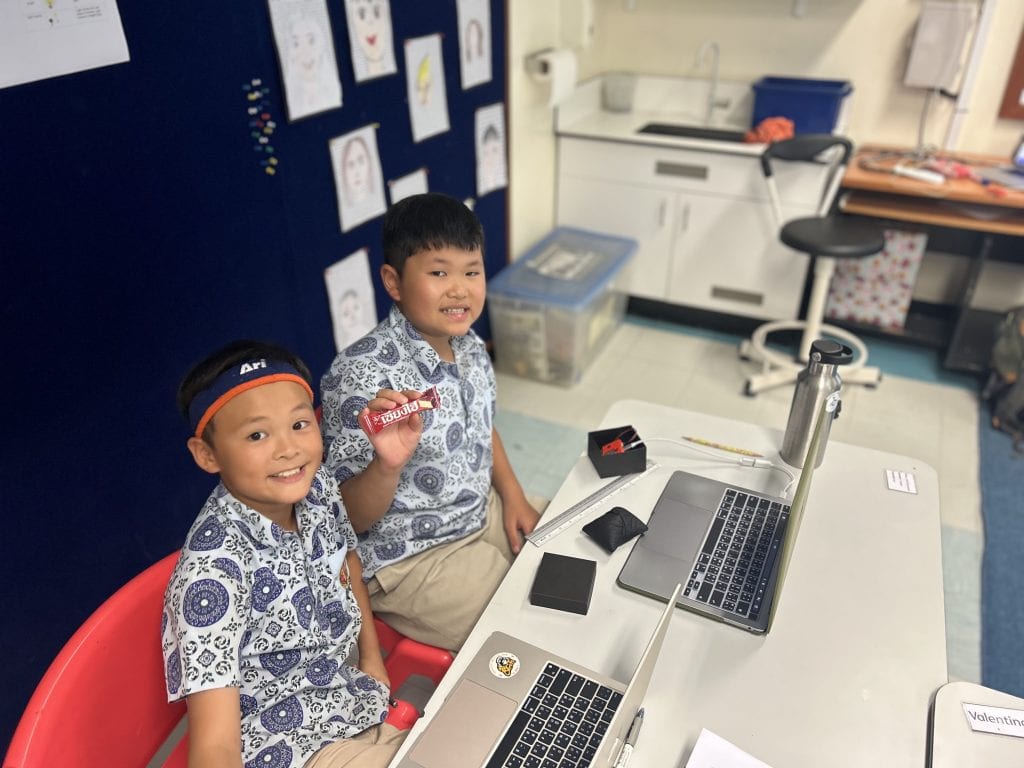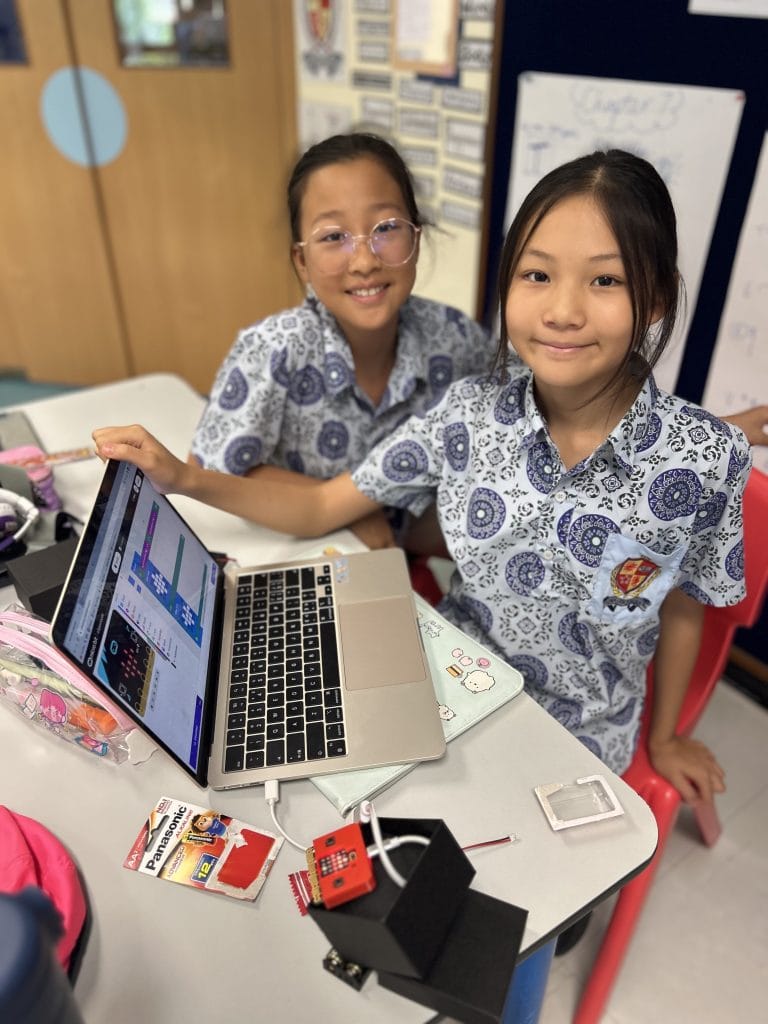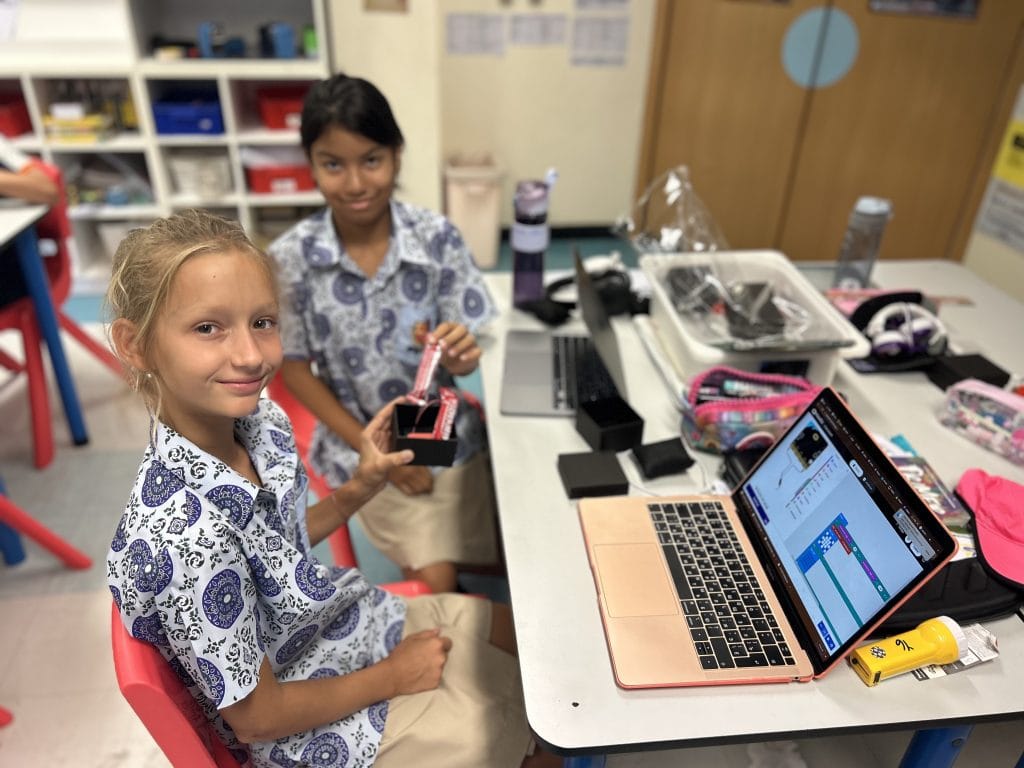| Getting your Trinity Audio player ready... |
Every child harbours incredible potential, and at BISP, we’re dedicated to unlocking it. Led by Kate Tucker, Jon Clark, Patrick Kennedy, Nigel Wheeler and Lee Phillips, our recently introduced ‘Innovation Afternoons’ have been a resounding success, stirring the imaginations and curiosity of our Year 6 and Year 5 students. These sessions are linked to the normal curriculum but offer opportunities to extend learning in the areas of STEAM and Innovation.
Year 6’s Adventure with Technology
The Year 6 students embarked on a thrilling journey into the world of programming and problem-solving with the BBC Microbit. Aligned with their light unit, Mrs Tucker and the students faced the challenge of safeguarding their “secret stash sweety boxes” from Mr. Clark, the chocolate thief! Initially, they focused on understanding how light sensors could be used to detect an intrusion. When the light sensor detected a sudden change (indicating someone opening the stash), the alarm would sound, alerting everyone nearby. They didn’t stop there; faced with new challenges, they ingeniously incorporated the accelerometer sensor to detect the movement of their “secret stash.” Through this process, the Year 6 students not only protected their sweets but also gained valuable insights into light, sensors, electronics, coding, and problem-solving.
Year 5’s Exploration of Space
Meanwhile, our Year 5 pupils were on a mission to explore the vastness of space, or at least, to understand how NASA is planning to conquer it. Their focus was the development of helicopters for Mars, a planet with a challenging atmosphere. After learning about the harsh Martian environment, they constructed demo models of these Mars helicopters using paper. The adventure didn’t stop there; they brought their creations to life using Scratch, a software programme developed by MIT. Programming their simulated helicopters to navigate to a designated landing zone on Mars offered a practical dimension to their space studies, opening their minds to the wonders of space exploration and further developing their programming skills.
The creativity, enthusiasm, and problem-solving skills displayed by our students were nothing short of inspiring. But this is just the beginning. We look forward to bringing this experience to other primary year groups, making ‘Innovation Afternoons’ a rotating part of our academic year. We’re eager to see what challenges our students will conquer next.
